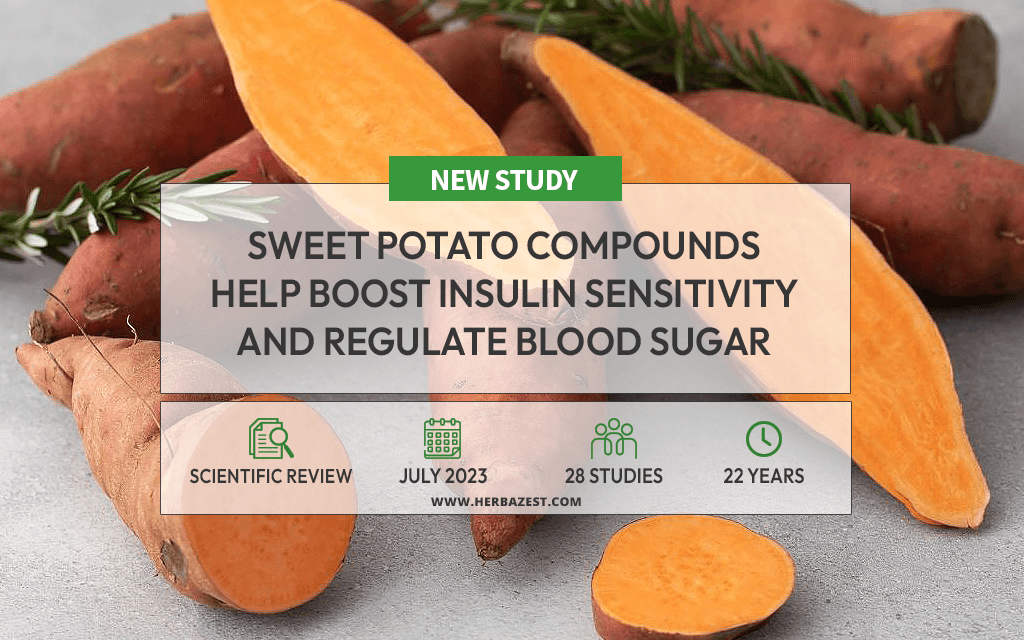Diabetes mellitus, affecting over 500 million people worldwide, is an escalating global crisis, with cases projected to continue rising.1 Type 2 diabetes, the most common form, is characterized by insulin resistance and dysfunction of the pancreas and liver. While current treatments, such as α-glucosidase inhibitors, are effective, their side effects have led to a search for safer, natural alternatives. Rich in bioactive compounds, sweet potatoes have shown promise in managing type 2 diabetes due to their potential anti-diabetic properties.
The Study
A systematic review was conducted to better understand the anti-diabetic potential of sweet potatoes. The study employed a thorough literature search, with 28 studies being in the included review. The selected research examined various sweet potato varieties, their bioactive compounds, and the mechanisms through which they exert their effects. The results were published in the 2023 edition of the Foods journal.
Results
The review provided evidence that sweet potatoes can help manage type 2 diabetes through several key mechanisms. They protect pancreatic β cells, crucial for insulin production, by improving islet structure and reducing oxidative stress, thereby maintaining pancreatic health.
Sweet potatoes have also shown to also enhance insulin sensitivity. Compounds like Caiapo have been shown to lower blood glucose levels in diabetic patients, while other bioactive components improve insulin secretion and support vital metabolic functions.
Moreover, sweet potato extracts help regulate carbohydrate metabolism. By slowing the breakdown of carbohydrates into glucose, they naturally control blood sugar levels and reduce glucose production in the liver. Sweet potato leaf extracts further support diabetes management by promoting efficient glucose uptake in tissues.
What Does It Mean?
The extensive review presents compelling evidence that compounds in sweet potatoes may help manage type 2 diabetes, making them a valuable natural tool. Their multi-faceted approach targets several aspects of the disease, from boosting insulin sensitivity to regulating glucose metabolism and protecting pancreatic function. This could potentially reduce dependence on pharmaceutical options.
However, the review also emphasizes that the effectiveness of sweet potato compounds varies due to factors like genetics, cultivation conditions, and processing methods. Therefore, further research is needed to standardize and validate the use of sweet potatoes in developing safe and effective diabetes treatments.
Other foods that may benefit those with diabetes include ginger, cinnamon, green tea, beans, and avocados.
Sources
- Foods, Mechanism of Anti-Diabetic Activity from Sweet Potato (Ipomoea batatas): A Systematic Review, 2023
Footnotes:
- International Diabetes Federation. (2021). IDF Diabetes Atlas. Retrieved November 5, 2024, from https://diabetesatlas.org/




